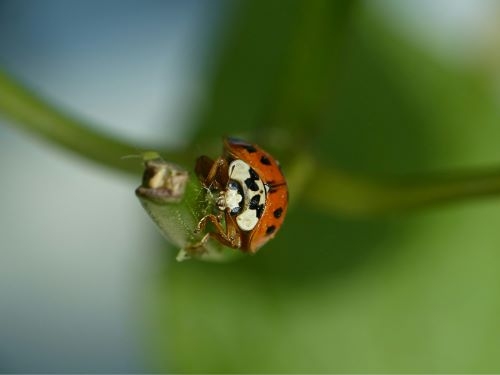Insecticides are crucial in modern agriculture, protecting crops from many insect pests. Systemic insecticides, in particular, offer several advantages due to their ability to be absorbed and translocated within the plant, providing long-lasting protection. This blog post will explore the top 5 systemic insecticides commonly used in farming today.
- Neonicotinoids
Neonicotinoids, such as imidacloprid, are a class of insecticides that mimic the action of acetylcholine, a neurotransmitter in insects. They are highly effective against various pests, including aphids, whiteflies, and thrips.
- Advantages:
- High potency and long-lasting residual activity.
- Systemic action provides excellent control of sucking and chewing insects.
- Available in various formulations, including seeds, soil treatments, and foliar sprays.
- Disadvantages:
- It can have detrimental effects on beneficial insects such as bees and butterflies.
- Potential for environmental contamination and groundwater pollution.
- Pyrethroids
Pyrethroids are synthetic compounds derived from pyrethrum, a natural insecticide derived from chrysanthemum flowers. They are fast-acting and effective against insects, including flies, mosquitoes, and cockroaches.
- Advantages:
- Low mammalian toxicity.
- A broad spectrum of activity.
- Relatively low cost.
- Disadvantages:
- It can be harmful to aquatic organisms.
- It can develop resistance in some insect populations.
- Organophosphates
Organophosphates are a class of insecticides that inhibit acetylcholinesterase, an enzyme crucial for nerve function in insects. They are highly toxic to insects but can harm humans and other animals.for m
- Advantages:
- A broad spectrum of activity.
- Relatively inexpensive.
- Disadvantages:
- High toxicity to humans and other animals.
- It can cause environmental contamination.
- Fipronil
Fipronil is a phenylpyrazole insecticide that disrupts insects' central nervous systems. It is highly effective against fleas, ticks, and termites and is also used to control various agricultural pests.
- Advantages:
- Long-lasting residual activity.
- Effective against a wide range of pests.
- Disadvantages:
- Can be toxic to aquatic organisms and birds.
- Potential for environmental contamination.
- Spinosad
Spinosad is a naturally occurring insecticide produced by the bacterium Saccharopolyspora spinosa. It is effective against various insects, including caterpillars, thrips, and leafminers. Products like Bomba - imidacloprid 17.8% SL insecticide are formulated to deliver this active ingredient to the plant, where it is absorbed and translocated throughout the plant tissues. This systemic action protects against pests that feed on the plant sap.
- Advantages:
- Low toxicity to mammals and birds.
- Effective against a wide range of insects.
- Breaks down quickly in the environment.
- Disadvantages:
- It can be more expensive than some other insecticides.
"The most effective pest control strategies often involve an integrated approach, combining cultural, biological, and chemical control methods."
Beyond the Top 5
While this list covers some of the most commonly used systemic insecticides, it is essential to note that new and innovative insecticides are constantly being developed. Research and development in areas such as RNA interference and microbial control agents offer promising avenues for the future of pest management.
FAQs
- What is the difference between a systemic and a contact insecticide?
Systemic insecticides are absorbed by the plant and translocated throughout its tissues, protecting within. Contact insecticides, on the other hand, only kill insects that come into direct contact with the sprayed surface.
- Are systemic insecticides safe for the environment?
The environmental impact of systemic insecticides varies depending on the specific compound and its mode of application. Some systemic insecticides can harm beneficial insects, pollinator populations, and aquatic organisms.
- How can farmers minimize the environmental impact of insecticide use?
Farmers can minimize the environmental impact of insecticide use by carefully selecting the most appropriate product for the specific pest and crop, applying insecticides at the correct rate and timing, and implementing integrated pest management strategies.
Remember: The responsible use of insecticides is crucial for protecting agricultural productivity and environmental health.
Disclaimer: This information is provided for general knowledge and educational purposes only and should not be considered professional advice. Always consult a qualified agricultural professional or pest control specialist for specific recommendations regarding insecticide use.
This blog post comprehensively overviews the top 5 systemic insecticides, highlighting their advantages and disadvantages. It emphasizes the importance of responsible insecticide use and encourages further exploration of innovative pest management strategies.
I hope this information is helpful!
